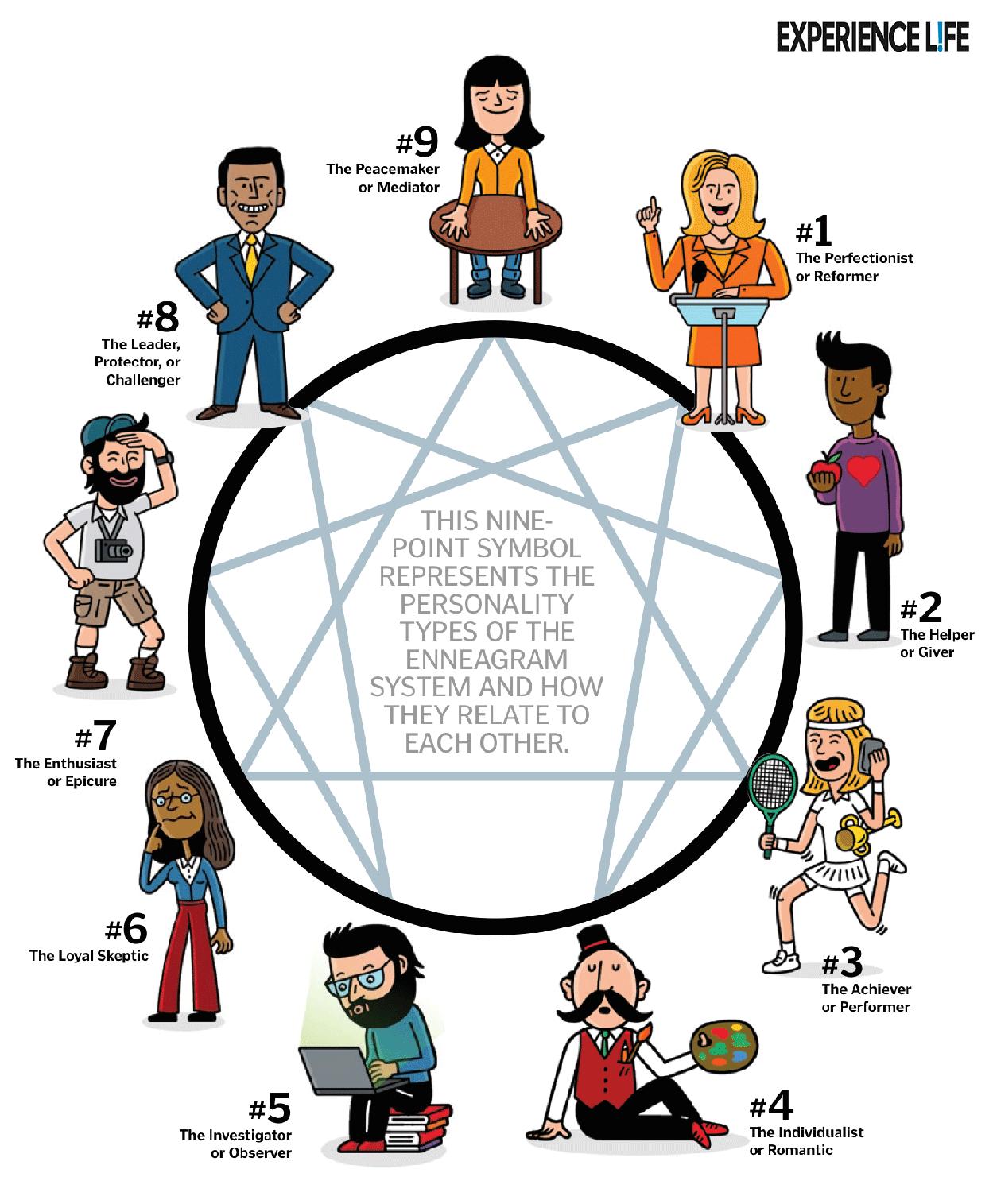
We all know how devastating it can be when someone we love is diagnosed with Alzheimer’s disease or dementia. There is endless literature to read, people to talk to, questions to answer. We have to sort our way through medical decisions, living situations, and emotional exhaustion and upheaval. One thing we will be consistently told, as caretakers, is to take care of ourselves during this trying time. Self care is so important when a loved one is struggling through Alzheimer’s disease. The problem is, people consider self-care to be very different things. What feels calming and life-giving to one person, may feel stressful or boring to another. In order to know what we need to take good care of ourselves, we have to know ourselves.
This is where the Enneagram comes in. The Enneagram is a personality typing system that has been around for hundreds of years. It puts people into nine basic types, allowing for the fact that there are seven billion people in this world and, of course, we are all different. These nine types speak to our motivation for our behavior. The Enneagram is designed for people to learn who they are, and then to learn how to grow into the most healthy version of themselves as possible.
So when it comes time to practice radical self-care, the Enneagram points to some helpful ways for each type to do that. Below, we will walk through each type with a short description of the type, and then some ways for that type to practice healthy growth and self-care.
Click here for a test to find out your enneagram type!
Type 1: The Reformer or Perfectionist
One’s are motivated by the need to live life the right way, improve themselves and others, and avoid anger. They are ethical, honest, reliable, and champions of causes. When unhealthy, they can be critical, judgmental, rigid, and resentful. When a loved one of a One is diagnosed with Alzheimer’s and the One becomes a main caretaker, they need to take some of the following steps to be healthy: be able to abstain from being productive, make time for play and exercise, set time limits for caretaking or cleaning/housework, spend time in nature, and create a sense of fun in their lives.
Type 2: The Helper or Giver
Two’s are motivated by the need to be loved and appreciated, to express positive feelings toward others, and to avoid being seen as needy. They are kind, generous, helpful, and empathetic. When unhealthy, they can be possessive, manipulative, people-pleasing and self-denying. When a loved one of a Two is diagnosed with Alzheimer’s and the Two becomes a main caretaker, they need to take some of the following steps to be healthy: experiment with new forms of self-expression such as art or music, let others help them, create and maintain healthy boundaries, and take regular periods of solitude.
Type 3: The Performer or Achiever
Three’s are motivated by the need to be productive, to achieve success, and to avoid failure. They are charming, hard-working, winsome, and accomplished. When unhealthy, they can be workaholics, arrogant, and self-promoting. When a loved one of a Three is diagnosed with Alzheimer’s and the Three becomes a main caretaker, they need to take some of the following steps to be healthy: find a few trusted people to share their anxieties with, take a break from the to-do list, do something creative that feels good rather than just looks good for others, and experiment with meditation or contemplation.
Type 4: The Romantic or Individualist
Four’s are motivated by the need to understand their feelings and to be understood, to search for the meaning of life, and to avoid being ordinary. They are creative, insightful, self-aware, and artistic. When unhealthy, they can be moody, self-absorbed, fanciful, and self-pitying. When a loved one of a Four is diagnosed with Alzheimer’s and the Four becomes a main caretaker, they need to take some of the following steps to be healthy: start working on projects that inspire others, take the first step in something you’ve wanted to do for a long time, find truthful friends who will mirror you honestly and lovingly, and start a daily gratitude practice.
Stay tuned for part two on the final five types.




